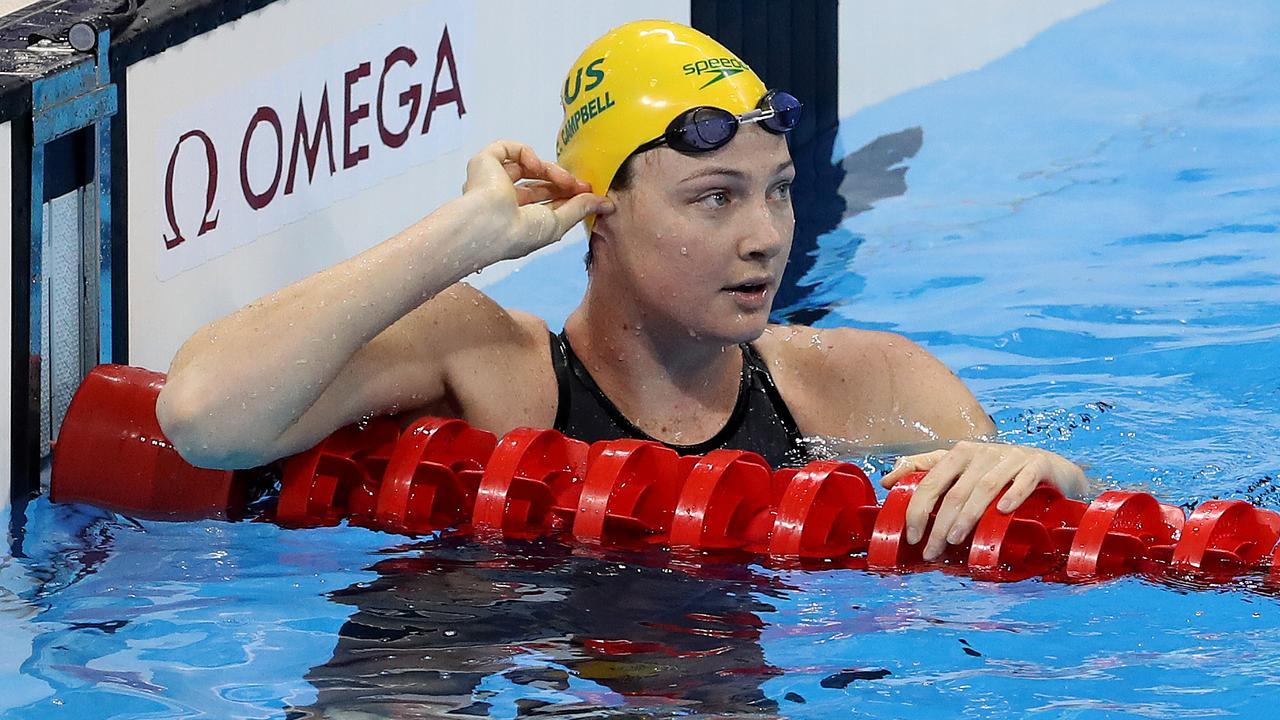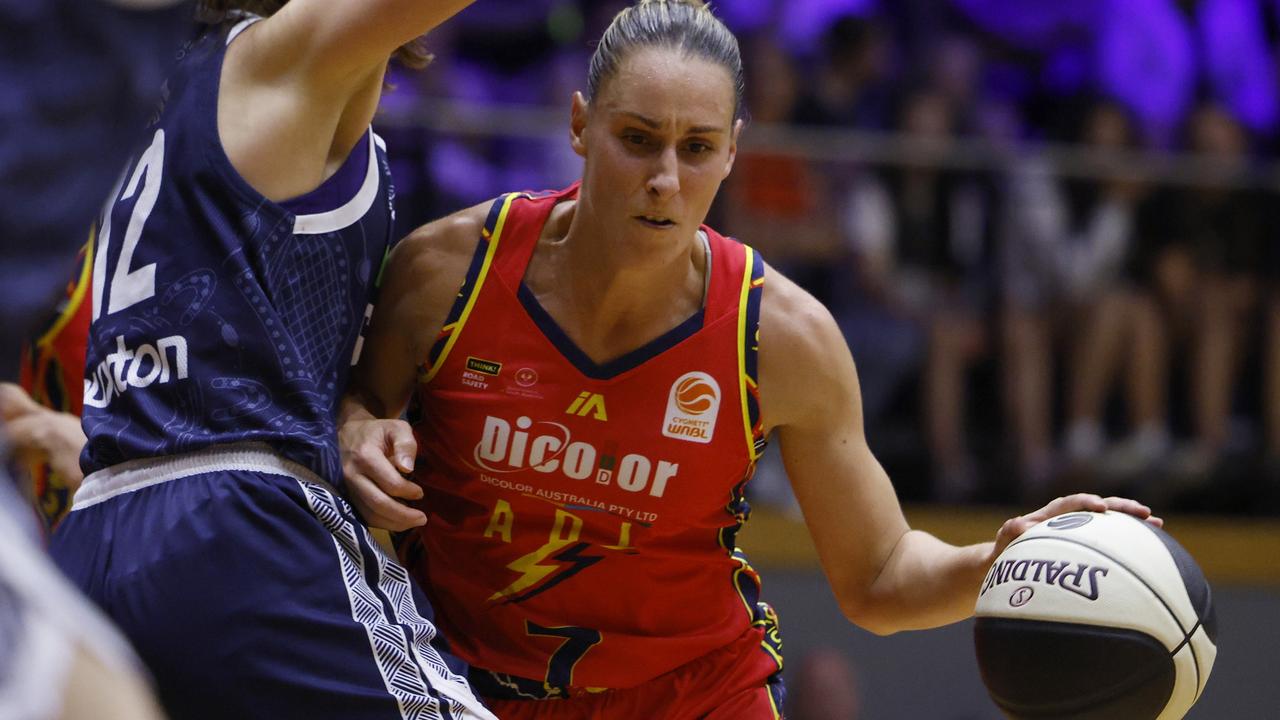Cate Campbell on the destructive nature of social media abuse and her worst public shaming
In her exclusive column, Cate Campbell details the online and real life abuse she has received and why the simple solution is not so simple after all.
Insight
Don't miss out on the headlines from Insight. Followed categories will be added to My News.
What are the worst thoughts you’ve had about yourself? The ones that lurk in the corners of your mind and scuttle out, like a rat running across a restaurant floor while you’re lying in bed at night.
What do they say? You’re worthless? You’re ugly? A waste of space?
What is the worst thing someone has said to your face? What insult have they hurled your way that makes your throat tighten and your stomach clench? You’re full of shit? You’re pathetic? You’ve let everyone down?
Now, I want you to imagine people not just saying these things to your face, but typing them out. Searing them in indelible black and white on the world wide web for thousands to see.
You’re useless. You’re a failure. A whinger, a crybaby.
As an elite athlete with a public profile, I do not have to imagine these scenarios. I live them.
I’ve had people come up to me in bars and tell me that I owe them money because they lost a bet on one of my races.
I’ve had grown men, look me up and down, with a cursory, almost predatory, glance and pronounce, ‘Well, at least you have a good body’, as though this makes up for all my other inadequacies.

I’ve had the worst things I’ve thought about myself confirmed by thousands of people. Served back to me in comments, tweets and DMs.
As humans, we are biologically wired to care about what other people think of us – and we crave praise and attention. In our cavemen times, it was essential for survival. We needed to
know what the people in our clan thought, because if the general consensus turned negative, we were kicked out on our own – a tasty snack for a hungry sabre-toothed tiger, or left cold and exposed, shivering away from shelter and fire.
Furthermore, we have an inherent negativity bias, also rooted in biology. Because humans are hardwired for survival, any perceived threat to our safety automatically takes precedence in our mind.
Therefore, because our brains identify negative comments as a potentially deadly threat, one nasty quip immediately negates 10 positive ones. To be clear, I have had many more messages of love and support than of hate. Messages which helped me through some of the toughest moments in my life.
Yet living at the whim of other people’s comments is a dangerous game. At any point the tide can turn. All it takes is one bad performance, one quote taken out of context and the trolls come out from under their bridges.
Whenever I raise these concerns, I’m invariably met with an exasperated sigh and the very unoriginal: “Why don’t you just get off social media?”
This piece of advice is as predictable as it is ignorant. In this day and age, many athletes, particularly female athletes, cannot afford to NOT be on social media.
WHY ATHLETES DEPEND ON SOCIAL MEDIA
The funding for Olympic and many female professional codes is woefully low. Most athletes in Olympic sports earn less than minimum wage and, while some professional female codes are improving, many athletes scrape by on less than $40,000 a year. Therefore, these athletes often have to work a second job to support themselves. And this is where social media comes in.
Social media provides another revenue stream for athletes – one which they can tailor to their demanding training and competition schedules. Whether it’s a couple of hundred dollars to post about a skincare product or receiving an expensive piece of sporting equipment for free, it all helps. I’ve heard stories of athletes who became iron deficient because they could not afford to buy red meat. Disgraceful.
Social media also allows athletes to showcase their creativity, hobbies and personalities.
Personally, I love getting to know more about an athlete through their social media accounts. Whether it is Jess Fox’s hilariously unimpressed greyhound, or Holly Ferling’s insanely impressive baking skills, these little insights help me invest in them and their journey – both on and off the sporting field.
BEYOND THE ATHLETE
With that being said, I now want you to think of a sporting moment that took your breath away. Was it Cathy Freeman crossing the line in Sydney? Was it Patty Mills sinking three-pointers to help the Boomers win their first Olympic medal in Tokyo? Was it Donnell Wallam’s iconic lay-up goal in the dying seconds of the game to hand Australia victory in the first Test against England’s Roses?
Behind each iconic sporting moment you get to enjoy, is a person. Not an athlete; a person.
A person who has worked and sacrificed. A person who has pushed the limits of human capabilities. A person who has inevitably won and lost – and yet does not let the losses define them.
Social media isn’t going anywhere and for each negative, there is a positive. Why not be part of the solution, not the problem. Think before you comment, pause before you tweet. Ask yourself how you want to repay our athletes for the blood sweat and tears they have poured into producing a sporting moment which makes you proud to be Australian. But also ask yourself how you can help them if they fall short.
More Coverage
Originally published as Cate Campbell on the destructive nature of social media abuse and her worst public shaming





